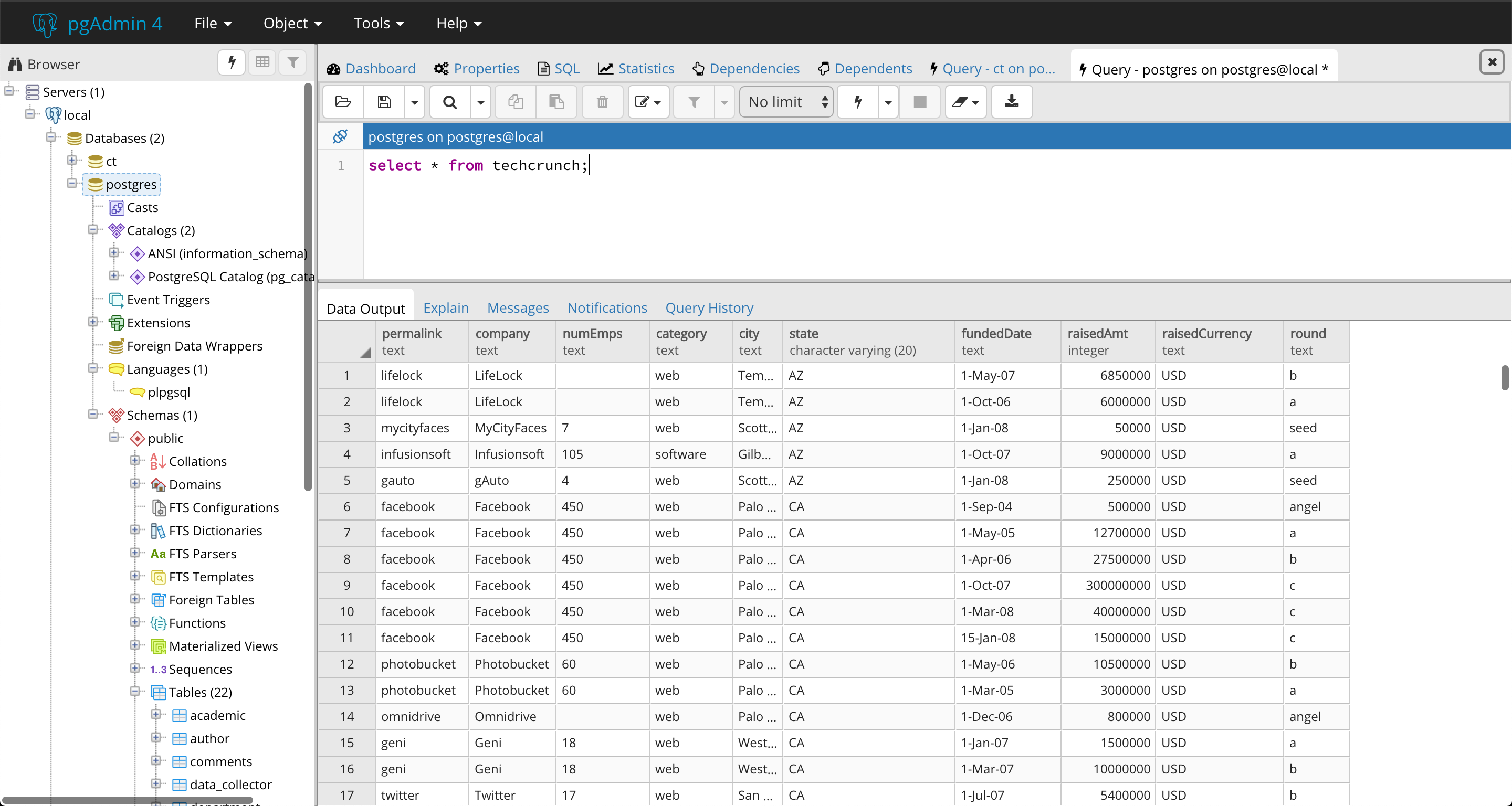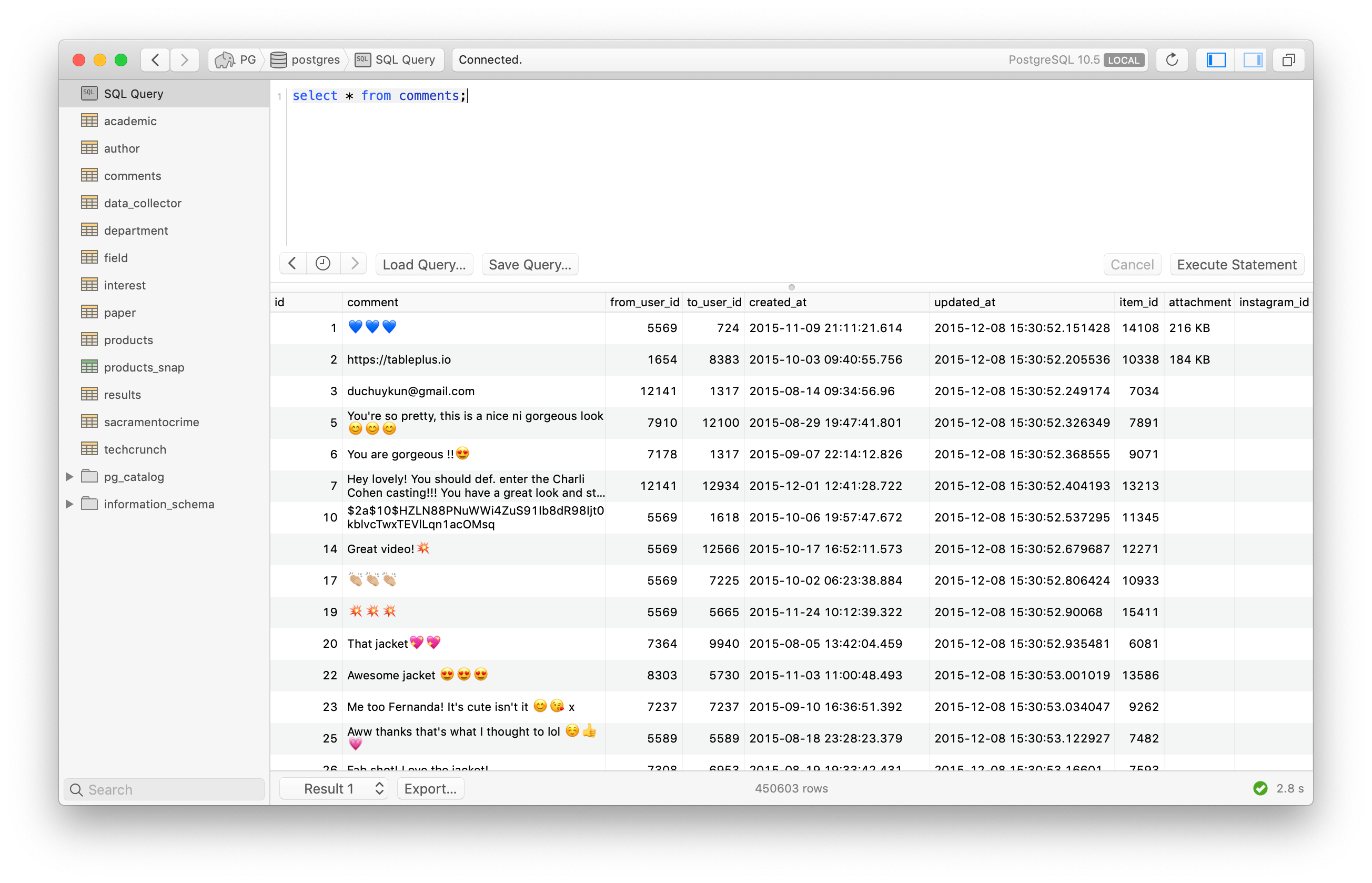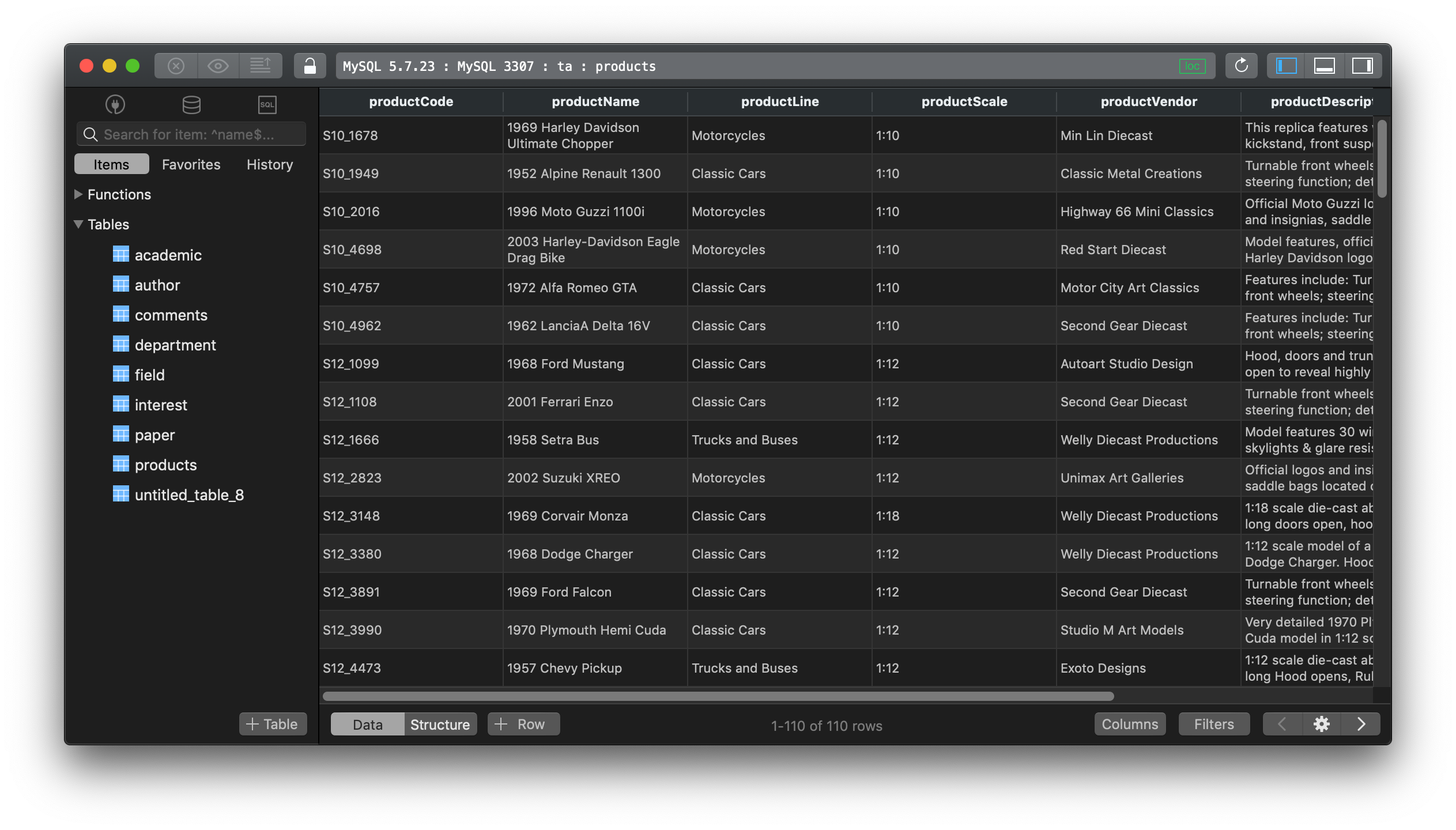pgAdmin vs Postico vs TablePlus - A quick comparison
This post will walk you through pros and cons of three PostgreSQL clients: pgAdmin, Postico, and TalePlus. It depends on the needs that you will find one tool more useful than the others, so let’s take a look at the quick review and see which tool matches your situation.
1. pgAdmin
pgAdmin is one of the most popular PostgreSQL database design and management tools.
-
Supported platforms: From the recent major update to pgAdmin 4, pgAdmin has become a web app, which can run on any computer with a web browser installed.
-
Supported Drivers: pgAdmin 4 works with PostgreSQL only. It works with PostgreSQL 9.2 and above.
-
Pricing: pgAdmin is a free and open source tool. Anyone can download pgAdmin from its website and use it for free.

Pros:
- It’s free.
- It can be easily deployed on any server and accessed remotely using any web browser.
- The UI is flexible and can be re-organized. The user interface elements are detachable panels that can be dragged around and re-arranged to be displayed stand-alone or in the tabbed browser.
Cons:
- It’s web-based.
- It only supports PostgreSQL.
- It’s slower to respond.
- It’s slower to start.
- It uses more resources
2. Postico
Postico provides an easy to use interface, making Postgres more accessible for newcomers and specialists alike.
-
Supported platforms: Postico is available on Mac only.
-
Supported Drivers: Postico works well with PostgreSQL 8.0 and later. It also supports database systems derived from PostgreSQL like Amazon Redshift or Greenplum, and systems that use the PostgreSQL protocol like CockroachDB.
-
Pricing: Postico is freemium. The free version has no trial time but it’s limited to 5 saved connections, only a single window per connection, and table filters are disabled. The license costs $39 per user.

Pros:
- It has a native experience for Mac
- The interface is simple and clean
- Full-featured table designer
- Advanced filter for the paid version
Cons:
- It’s Mac only
- It supports PostgreSQL only, no support for other databases.
3. TablePlus
With a native build and a lightweight size, TablePlus is a very handy tool for managing multiple databases.
-
Supported platforms: TablePlus is built native for each platform. It started out with a native version for Mac, then another version for Windows, and a version for Linux was introduced recently as an alpha release. It also has an iOS version.
-
Supported Drivers: TablePlus supports a handful of relational databases: MySQL, PostgreSQL, SQLite, Microsoft SQL Server, Amazon Redshift, MariaDB, CockroachDB, Vertica, Oracle; and two popular NoSQL databases: Cassandra and Redis.
-
Pricing: TablePlus has a free version with full set of features which you can download and use forever, but there are some usage limitations. If you use it heavily, the license costs $59 to remove all those limitations.

Pros:
- Native build for each platform so it’s fast, lightweight, and stable.
- Clean and simple interface.
- Multiple drivers support
- Multiple conditions data filter
- Queries history and keyword binding favorite.
- Streaming results and async loading to show queries results faster and doesn’t block the UI.
- Very quick inline editing for table data and structure, you also can edit query results directly.
- Smart query editor with highlight syntax, instant autocomplete, SQL reformat.
- Multiple carets
- A plugin system to extend the app.
- Quick support. TablePlus releases new updates regularly and responds to users’ requests almost immediately.
Cons:
It currently lacks of some advanced features such as ER Diagram, database compare tool to Diff and Sync, etc.
4. Conclusion
Go with pgAdmin if you:
- Work with PostgreSQL only
- Prefer a web app over a desktop app
- Need to get the job done and don’t mind the performance & UX
- Need a tool that is completely free
Go with Postico if you:
- Work with PostgreSQL only and need a tool that is highly customized for PostgreSQL
- Work on macOS only
Go with TablePlus if you:
- Are a fan of native experience
- Work with multiple databases
- Want a modern design with better usability
- Want quick support & development cycle.